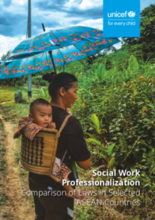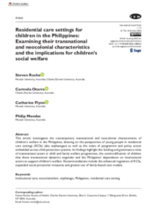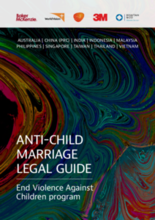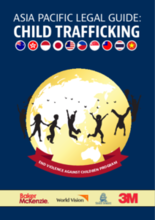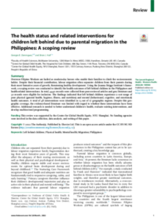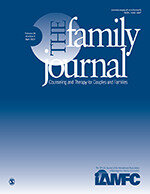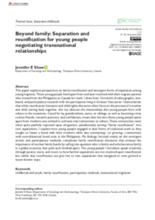demographic_data
childrens_living_arrangement
children_living_without_bio
adoption
social_work_force
key_stakeholders
Key Stakeholders
Add New DataOther Relevant Reforms
Add New Datadrivers_of_institutionalisation
Drivers of Institutionaliziation
Add New Datakey_research_and_information
Key Data Sources
Add New DataDisplaying 1 - 10 of 85
This paper provides a comparative analysis of social work professionalization in the Philippines, Thailand, Indonesia and Singapore. By examining the different approaches across the countries, policymakers will have examples of practices that have been effective elsewhere and adopt these to suit the context of Malaysia.
The main objective of this assessment and report is to gain knowledge about children with disabilities without family support, or at risk of being so, and the alternative care arrangements available for these children in the Philippines. In addition, whether there is scope for improvement of alternative care measures in the Philippines in line with international standards.
This article investigates the contemporary transnational and neocolonial characteristics of children’s welfare in the Philippines, drawing on the perspectives of young people in residential care settings as well as the views of programme and policy actors embedded across child protection systems.
The long-term consequences of COVID-19 have been tough for children around the world, but even more so for young children already in humanitarian crises, whether due to conflict, natural disasters, or economic and political upheaval. Drawing on research and voices from the Global South, this book showcases innovations to mobilize new funds and reallocate existing resources to protect children during the pandemic.
This Anti-Child Marriage Guide produced by World Vision aims to empower and educate users as how to best navigate regulatory hurdles that may arise when assisting children affected by child marriage. This fourth legal guide addresses frequently asked questions relating to protecting victims of child marriage in Australia, Mainland China, India, Indonesia, Malaysia, the Philippines, Singapore, Taiwan, Thailand, and Vietnam.
This Child Trafficking Legal Guide produced by Baker McKenzie, World Vision, State Street and 3M aims to empower and educate users on how to best navigate regulatory hurdles that may arise when assisting children affected by human trafficking.
The UN Child Rights Committee (CRC) today issued its findings on Germany, Kuwait, North Macedonia, the Philippines, South Sudan, Ukraine, Uzbekistan and Viet Nam after reviewing the eight States parties during its latest session.
Overseas Filipino Workers are hailed as modern-day heroes who enable their families to climb the socioeconomic ladder. Despite their financial contribution, labour migration often separates children from their parents during their most formative years of growth, threatening healthy development. Using the Joanna Briggs Institute’s frame-work, this scoping review was conducted to identify the health outcomes of left behind children in the Philippines and health-related interventions.
This study investigates how experiences and practices of transnational care arrangements are negotiated from the perspective of the nonparental carers. It specifically aims to understand its dynamics and patterns in shaping care relationships, normative familial values and the hope to reconstitute the family amidst migration-induced care.
This paper explores perspectives on family reunification and emergent forms of separation among young migrants. These young people lived apart from and later reunited with their migrant parents who moved from the Philippines to Canada for work.

